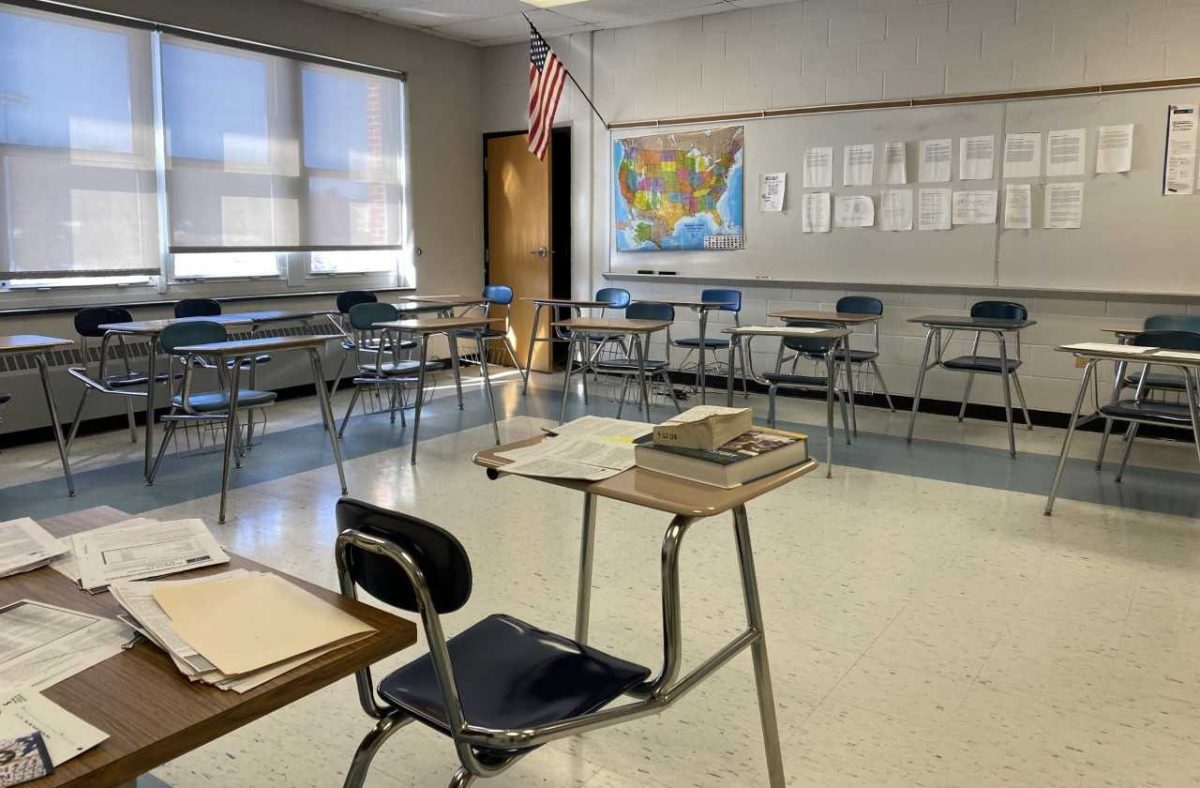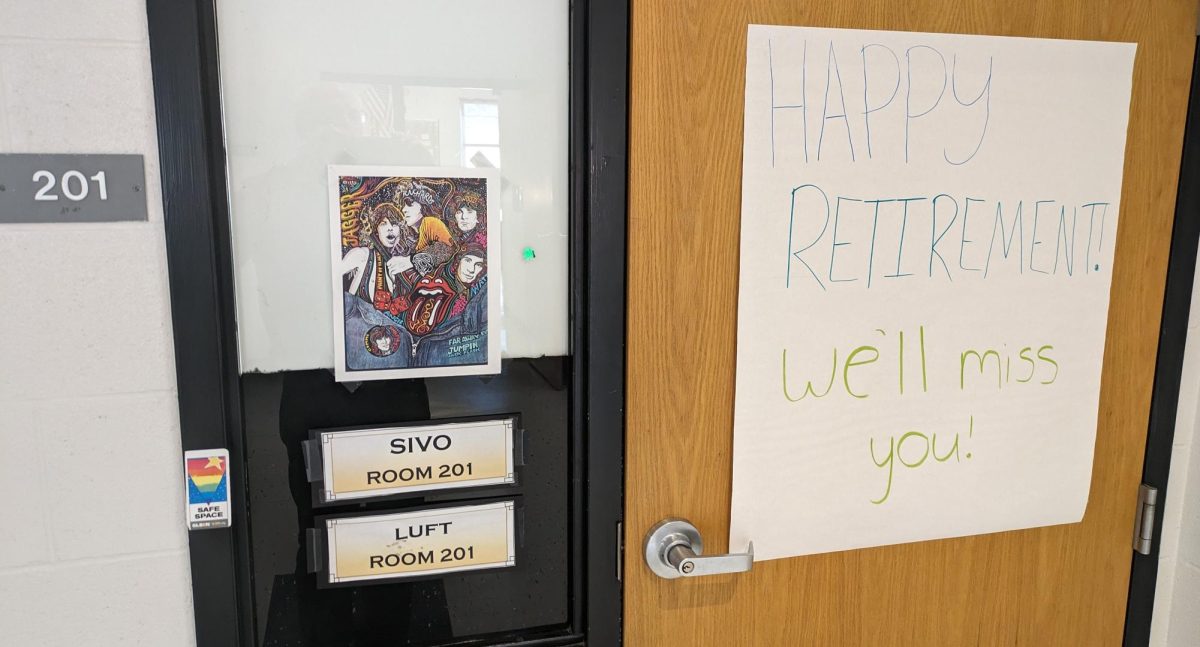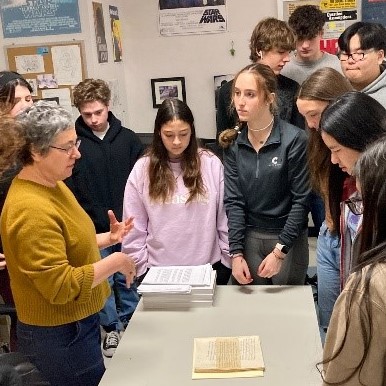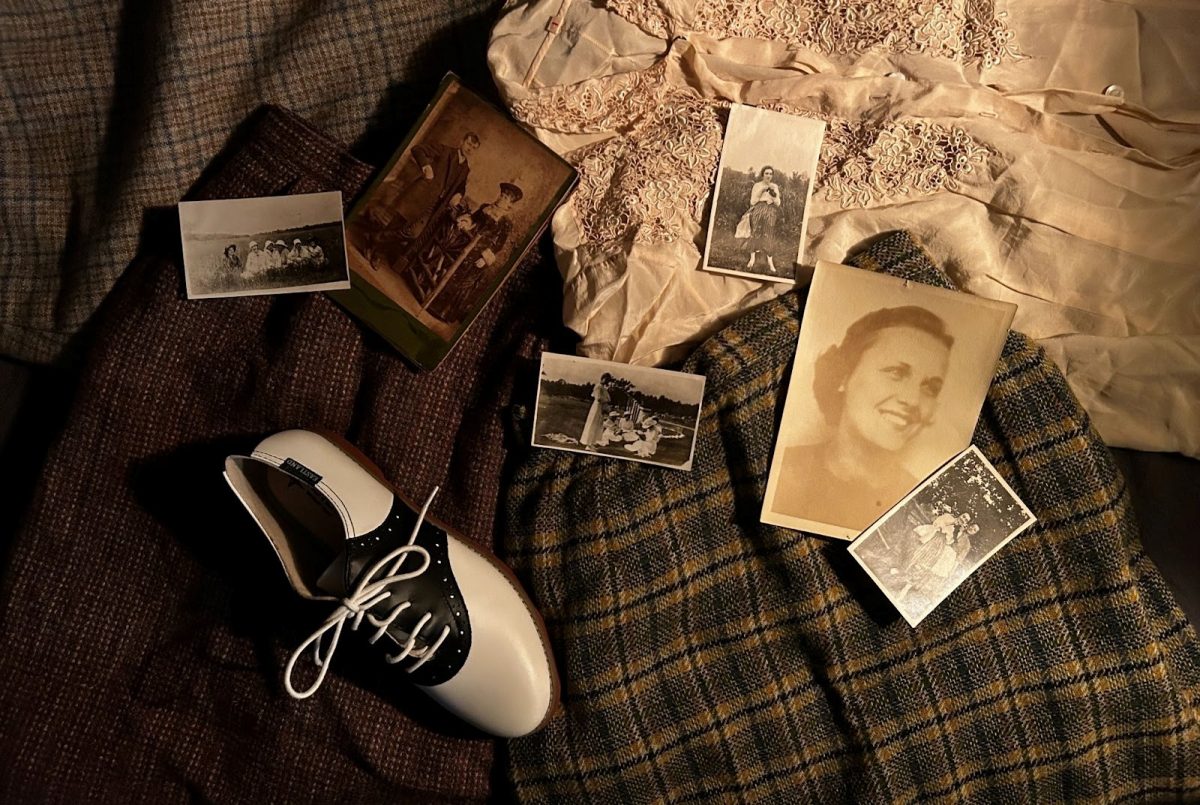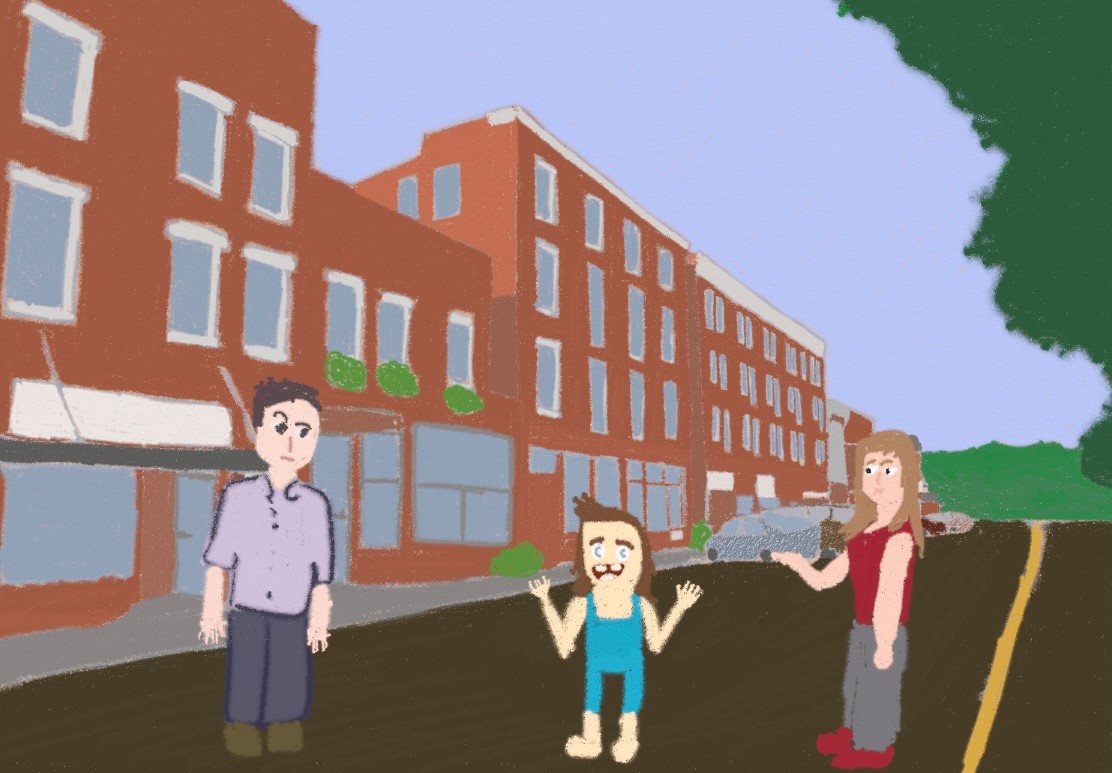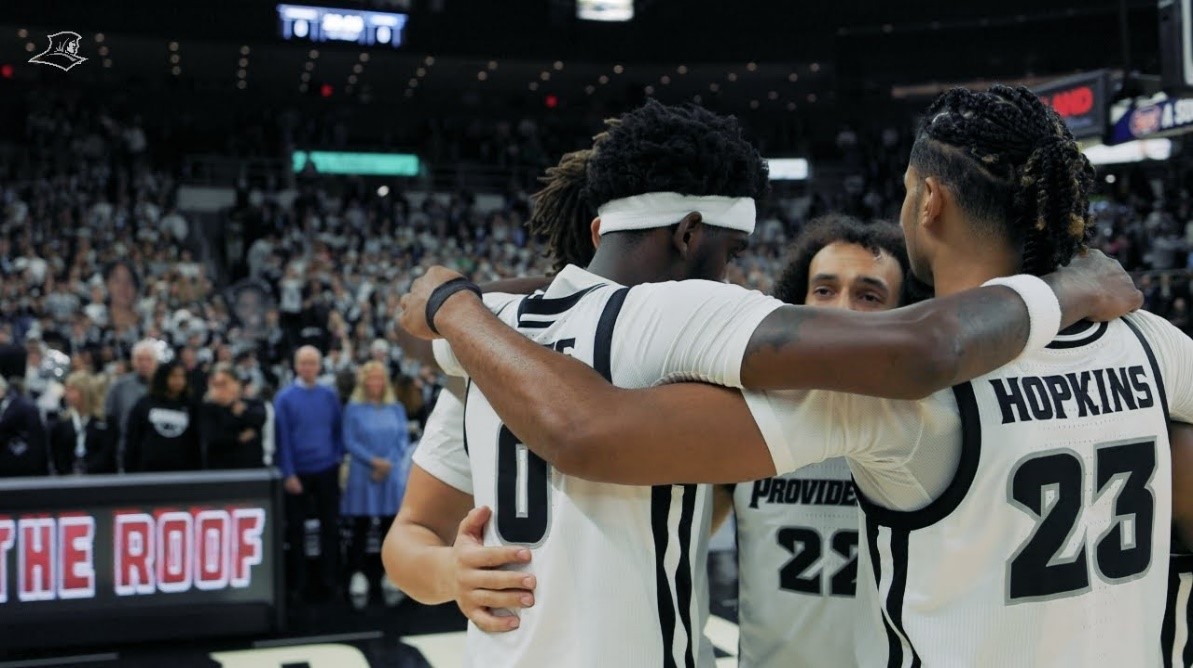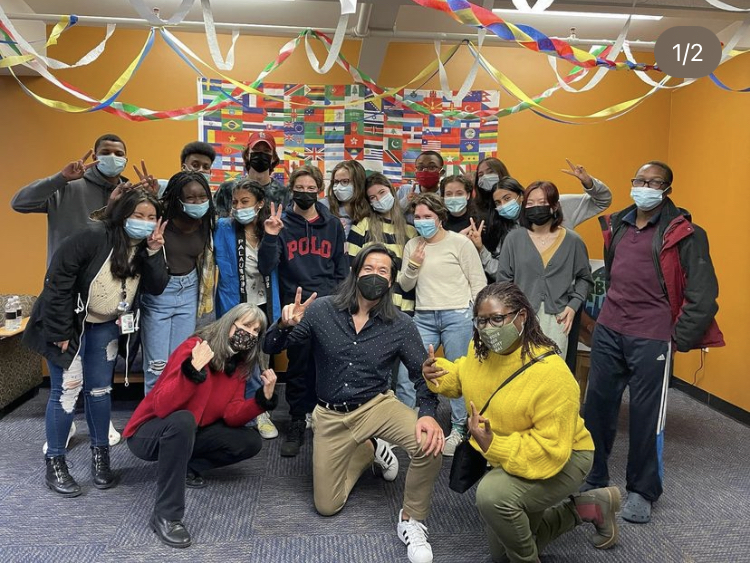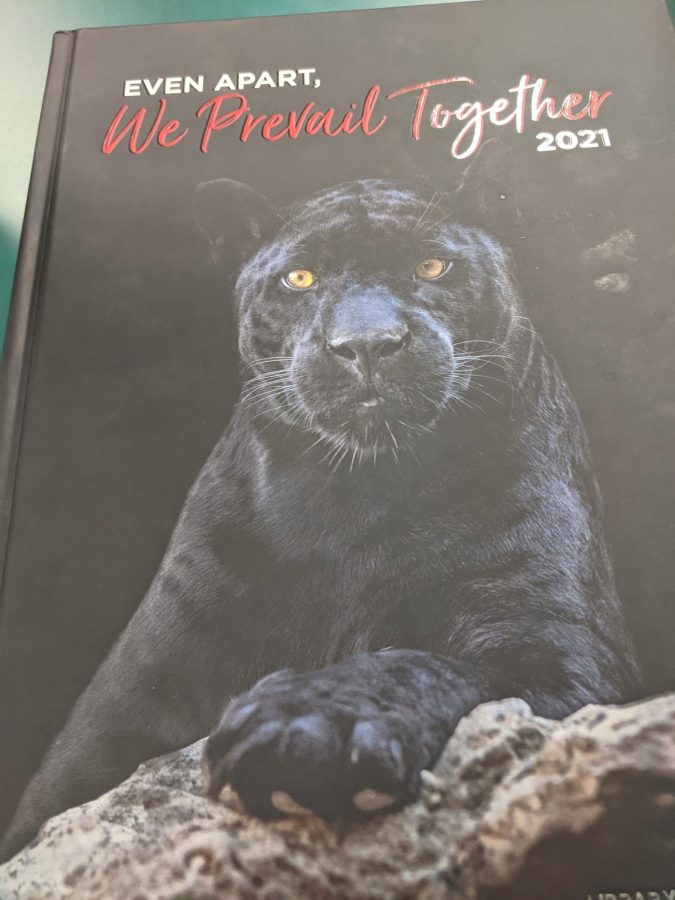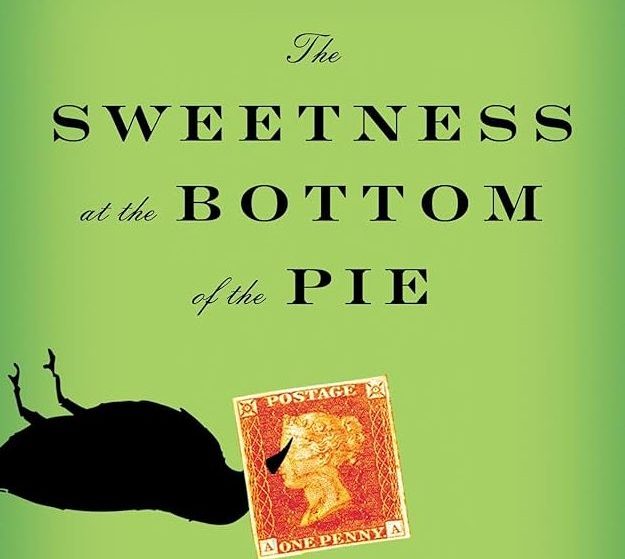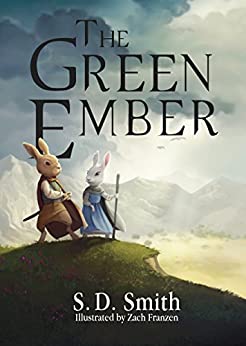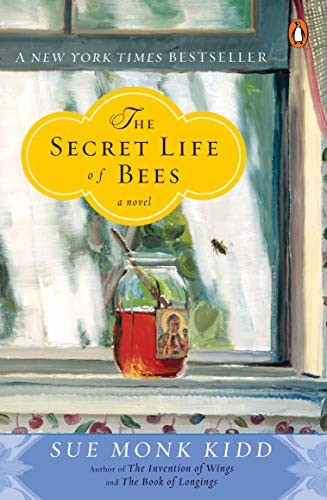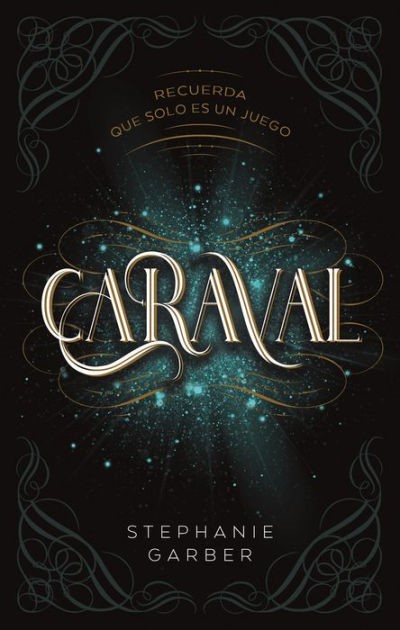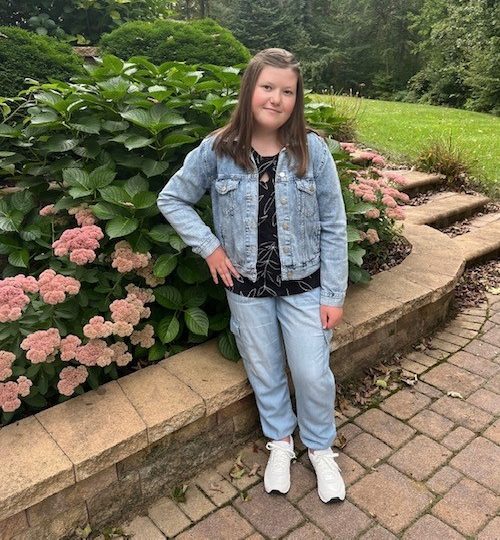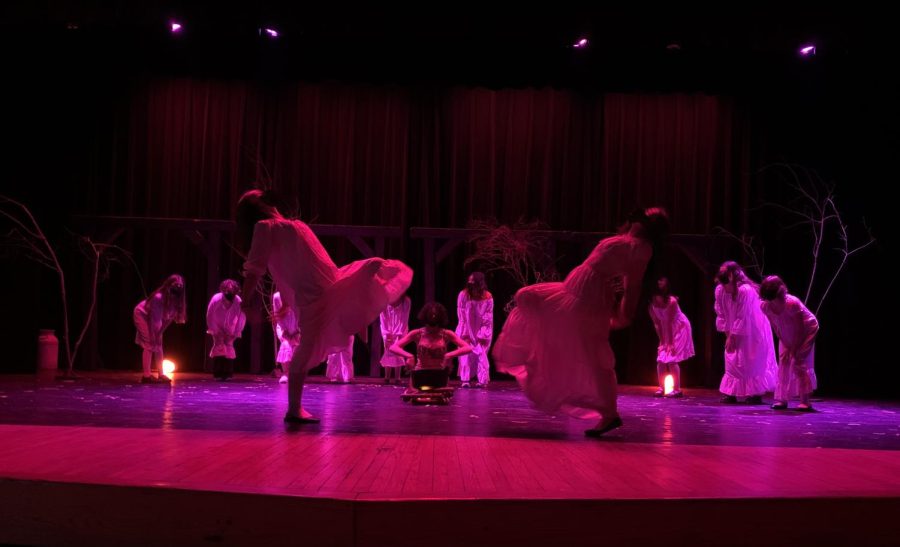Directing The Crucible: Senior Directors Share Experiences
Students Directors Bring Play to Life on Stage
May 1, 2022
The Drama Club brought Arthur Miller’s The Crucible to the stage of E.O. Smith earlier this year. Four seniors — Gillian Duhaime, Jay Hernandez, Chanel De la Cruz, and Madelyn Bonkowski — directed the production. The directors shared their experience directing a full-length play and how they collaborated as a group with the entire cast and crew to create the final product.
What did you enjoy about being a senior director for the Drama Club?
Duhaime: I enjoyed everything about it, from the bigger things – like putting the scenes together, trying on costumes and working on acting – to the smaller things like laughing over the blocking or certain lines with my cast. I also loved the overall bonds I made with everyone; so many of this cast and crew made me feel like a better person, and I’m so grateful to have worked with them.
Hernandez: I enjoyed getting to have and display my own vision and interpretation of a show.
De la Cruz: I loved seeing my work come to a reality, just seeing my vision in motion was truly unreal to me because we really put in a lot of effort to create a beautiful and amazing performance, and it’s honestly my favorite part about being a director.
Bonkowski: I’ve enjoyed the influence that I had on the younger kids/underclassmen in Drama Club. I like being older in the Drama Club; when I’m a senior I get a (stronger) voice in the club, and can express my opinions more. I also finally got the chance to be more comfortable in the club.
What challenges have you encountered in being a senior director (especially this year)?
Duhaime: I think Covid was definitely a problem. We had to work around the masks and social distancing, so some blocking was limited. But it was a very stressful experience for me. This is my first year in the EOS Drama Club … (and) also playing a lead definitely was very stressful.
Hernandez: Some challenges were casting and costumes; not having (a large selection pool) made it difficult to cast, and having limited resources added struggles and limitations to costuming decisions.
De la Cruz: I think a challenge I faced during this production was just trying to create the scene, and making the scene as smooth and well thought out as possible. I didn’t want the audience to be confused on where the scene was taking place, and for me it was very hard to create a set-up for a certain scene BECAUSE of how big the scene was.
Bonkowski: One main thing was obviously COVID, I had some limitations while directing. I tried to keep physical touch in the shows I directed as minimally as I could because of restrictions. When being a senior director, it’s hard to direct when many people you are directing are your close friends. Even when my friends said they like my directing style, it’s hard to separate being a director while also being a friend.
Was there anything specifically interesting or challenging about directing this particular production, The Crucible, or the dramatic presentation choices you made as a group?
Duhaime: There were a lot of disagreements between the four of us. One person would want this scene to look this way, while another disagreed, etc., but we still worked together, and in the end the four of us became super close with the constant contact we had. But this experience taught me so much about how there’s so many different opinions on one thing, like lighting or blocking.
Hernandez: Personally, I found directing The Crucible added challenges for the actors to play characters of a time when people were inhumane and thus directing such brought to life how wrong it is in a sense of a reminder of how our society is slowly improving socially.
De la Cruz: I think it was very hard for some of us to rehearse scenes with Tituba, because she is a slave and in the script there were some graphic phrasing and actions that were placed. But as a cast we understood how this was not okay, and we made sure people were comfortable. I really appreciated the number of people who asked if I was specifically comfortable playing the character, Tituba—it really showed how much people really understand the struggles of (people of color).
Bonkowski: Directing as a group was one of the most challenging things I have done in theater. Communicating for this production was difficult, but we managed. … All throughout directing The Crucible, while it was challenging, it was so much fun.
Throughout the show, in between scenes, I came up with an idea to have small movements or dances to keep the audience engaged. I choreographed the first dance where the girls in the show dance in the woods. I never thought I would choreograph a whole group dance like that but it just happened, and the girls in the dance cooperated so well. The other small movements between scenes mainly featured the girls in the show. My idea was to show the “behind the scenes” of what Abigail Williams and the girls were planning, which led to the big courtroom scene. The dance that happened after the courtroom scene was supposed to show the relationship between Abigail Williams and Elizabeth Proctor. It was a constant mental battle between the two. For that dance, I asked my friend Parker Perosky to choreograph a dance, so she could showcase her dancing as well as (that of) Angelica Jones. The last movement before curtain call showed Abigail taunting her victims including John Proctor.
Coming up with the movements in between scenes was definitely the most fun I had while directing this show. When directing the last scene, it was mainly challenging to capture the intense emotions that were being expressed in that scene. Jack Dooley, who played John Proctor, made my vision of John Proctor come to life in that scene. Being able to direct the ending of the show was very rewarding, and I’m glad I was able to wrap up the show.
Is there anything you’ve learned about in terms of theater itself throughout the process of bringing this particular play to life?
Duhaime: Obviously acting. I never played a lead before or even tried to, so this experience has definitely helped me learn acting in theater, like projection, diction, and emotion in how you say your lines.
Hernandez: I’ve learned being a director isn’t as easy as it seems to be; however, it’s very fun. I thought it would be boring because you wouldn’t have to do much but quickly I realized that wasn’t the truth.
De la Cruz: Something I learned in theater was, theater is fun. Theater isn’t just a job, it is a lifestyle. And I feel like I devoted a lot of my time on this production so it could come out the way it did, and I am very proud of how everything came out. I also learned everyone’s ideas are VALID and could really change up the look of the show. It’s always nice to talk to an outside source, because it’s viewed from an audience perspective rather than a director or actor.
Bonkowski: I’ve learned there is a huge range when directing and acting. The acting especially in this play was so challenging compared to a light play like Alice in Wonderland. I mainly learned the only way you can bring a show to life is if you have people who are committed. Being committed and having people who are actually interested in theater makes a production ten times better.
What was the stress level like for you throughout rehearsals and production week?
Duhaime: Definitely 7/10. It was 9.9/10 during tech week and the show, because as a director I had to run around and just talk to so many people, make sure the scene I was in charge of was perfect, and even make sure of me with my lines, blocking, etc.
Hernandez: Stress was very high due to snow days shortening the amount of rehearsals we had … but it ended very well, and I’d gladly do it again.
De la Cruz: If I’m going to be honest, there were times where I would dread coming to rehearsal because of the amount of stress that was on (the) directors; for me personally it did take a mental toll because instead of taking myself for consideration, I was thinking too much of the play instead.
Bonkowski: I was incredibly stressed when it was show week. Surprisingly, I was less stressed for myself and more stressed for the other actors in the show. … The show, even with the small flaws, was a success. It was my first live acting experience since COVID, so my stress levels were higher than usual, but it all worked out.
Was the process as a whole more involved than you previously anticipated?
Duhaime: Yes! I thought once we assigned our scenes the directors wouldn’t really work together a lot, but I was very wrong. The four of us gave tips and opinions that helped others and ultimately made the show as great as it was.
Hernandez: I thought the process would be easier and more simplistic, but it was really fun and detailed.
Bonkowski: I’ve already had previous experience with live theater, so I knew the commitment of being in a show was crucial. Going into this production, I was ready for rehearsals every day. It’s important to involve yourself mentally before physically starting rehearsals and that’s what I did.
How did others outside your group of directors help you throughout this process?
Duhaime: They helped by just being patient. I became very close friends with most of the cast and tech, and they have helped encourage me a lot. (They) were very patient with me when I forgot bits and pieces of a scene.
Hernandez: Others assisted in suggestions for certain props, costumes, lighting, and dance experiences, which was really helpful and broadened my vision of the show.
De la Cruz: Just seeing an outsider’s perspective meant so much to me, because like I said, seeing this from an audience member’s perspective is so very important. You need to think, “will the audience understand this?”
Bonkowski: I became very close with the group of directors I worked with in the end, and we were already pretty comfortable with each other as it was. Outside of the directors, I became very close with other actors in the show like Daniel Heumman and Nora Brown. Being friends with other people in the drama club other than the actors gave me a chance to feel more like people’s friends than their director. To lots of people in the show, they saw me as more of a friend than a director, and I always preferred that when we were not working. My friends outside of the group of directors helped remind me that I’m still just a kid in Drama Club.
How might you encourage students at E.O. Smith to get involved in Drama Club?
Duhaime: You’re going to make the most unforgettable friends! I think the people in the club are definitely the best part of the club. It’s such a welcoming and open community for all!
Hernandez: Join and try it out! It’s really fun and you get to meet great people! It’s definitely time consuming but totally manageable!
De la Cruz: I think Drama Club is an amazing place to be if you surround yourself with the right people—sometimes it has its moments where you want to rip your hair out, but it’s definitely worth it once show week hits.
Bonkowski: Drama Club is not just about acting. There are so many opportunities that the club can give you. Set design, lighting design, costume design, making props, even helping out behind the scenes of a show is being a part of Drama Club. There’s many sides to Drama Club than just the arts as well, like handling money/ticket sales. If you do love any part of the arts, join the drama club, it can be a tremendous experience. The club also gives you a chance to make new friends – some of my closest friends I made because of this club. I hope more people continue to be a part of the plays and musicals in the drama club whether they are student written or student directed or not.
Anything else you’d like to share?
Duhaime: This experience changed my life as a whole. I loved every second, even the ones where I was crying over stress and when I was laughing so hard I couldn’t breathe. This was definitely the best choice I’ve ever made in my whole life, and I don’t regret it one bit.
Hernandez: I’d like to say as a senior doing this show and being a part of such a great group of people made me really happy and made my last year memorable.
Bonkowski: I plan to pursue musical theater and acting. I’ve always been a part of theater and the overall Drama Club experience has been challenging yet amazing. These experiences have helped me get closer to having my dream turn into a reality.
FOLLOW THIS LINK TO VIEW THE CAST AND CREW OF THE PLAY!


